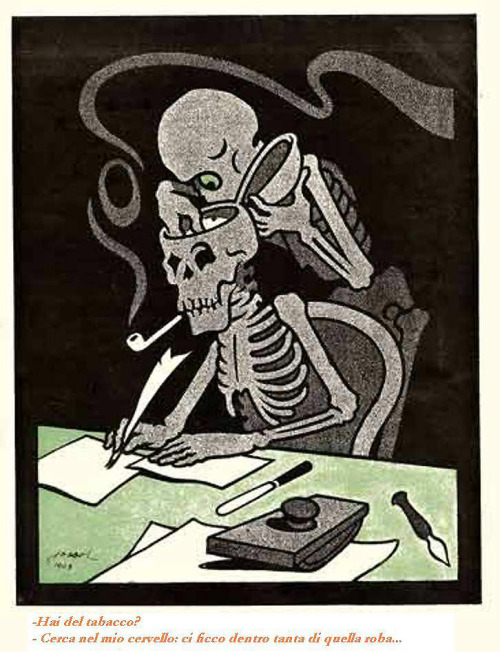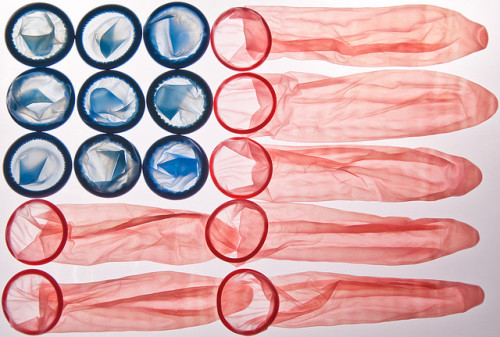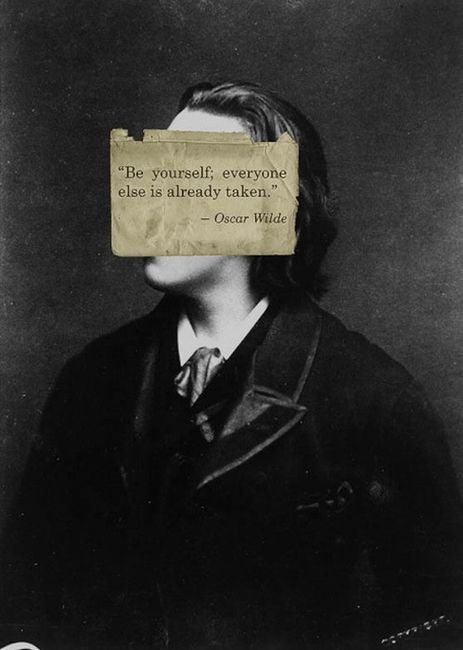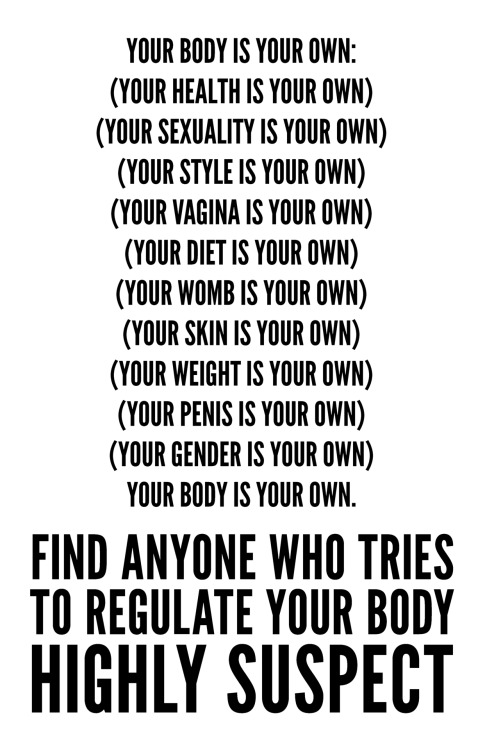Monday, March 12, 2012
Amazon Update
Just a quickie post that I have finally updated my amazon author profile (which is here) and a partial list of my books (which is here) as amazon only let's me put up 40 books in a list
Sunday, March 11, 2012
Confessions Of A Literary Streetwalker: "Hey There, Big Boy--"
Check this out: I just wrote a neat little "Confessions Of A Literary Streetwalker" for the great Erotica Readers & Writers site about publicity and the lengths that (ahem) 'certain' writers may go for it - and not just me. Here's a tease - for the rest just check here.
Oh, dear, I've done it again.
You'd think would have learned my lesson – what with the fallout over the whole Me2 "plagiarism" thing – but I guess not.
Just in case you may have missed it, I have a new book out, called Finger's Breadth. As the book is a "sexy gay science fiction thriller" about queer men losing bits of their digits – though, of course, there's a lot more to the novel than that.
Anyhow, I thought it would be fun to create another bout ofcrazy publicity by claiming that I would be lopping off one of my own fingersto get the word out about it.
Naturally, this has caused a bit of a fuss – which got me to thinking, and this thinking got me here: to a brand new Streetwalker about publicity ... and pushing the envelope.
The world of writing has completely, totally, changed – and what's worse it seems to keep changing, day-by-day if not hour-by-hour. It seems like just this morning that publishing a book was the hard part of the writing life, with publicity being a necessary but secondary evil. But not any more: ebooks and the fall of the empire of publishing have flipped the apple cart over: it's now publishing is easy and publicity is the hard part ... the very hard part.
What's made it even worse is that everyone has a solution: you should be on Facebook, you should be on Twitter, you should be on Goodreads, you should be on Red Room, you should be on Google+, you should be doing blog tours, you should be ... well, you get the point.
The problem with a lot of these so-called solutions is that they are far too often like financial advice ... and the old joke about financial advice is still true: the only successful people are the ones telling you how to be successful.
That's not to say that you should put your fingers in your ears and hum real loudly: while you shouldn't try everything in regards to marketing doing absolutely nothing is a lot worse.
[MORE]
Thursday, March 08, 2012
Who Is This Guy?
This is wonderfully, glorious, WEIRD: I just stumbled across this Tumblr post of a picture from Flickr. But guess who mchristianzobop is? Oh, and the picture is STILL my iPhone wallpaper ;-)
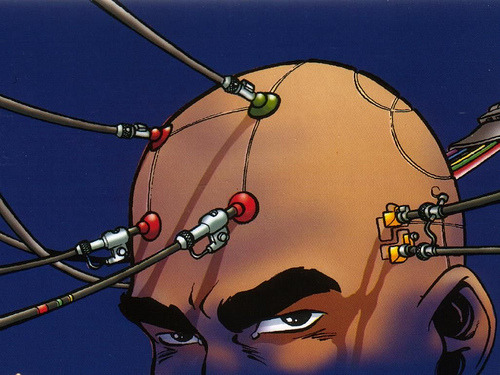
patronsaintofgelflings:

patronsaintofgelflings:
nomad002 (by mchristianzobop)
Wednesday, March 07, 2012
Saturday, March 03, 2012
Timothy Leary's NOT Dead
“Admit it. You aren’t like them. You’re not even close. You may occasionally dress yourself up as one of them, watch the same mindless television shows as they do, maybe even eat the same fast food sometimes. But it seems that the more you try to fit in, the more you feel like an outsider, watching the “normal people” as they go about their automatic existences. For every time you say club passwords like “Have a nice day” and “Weather’s awful today, eh?”, you yearn inside to say forbidden things like “Tell me something that makes you cry” or “What do you think deja vu is for?””
- Timothy Leary
Friday, March 02, 2012
Thursday, March 01, 2012
Tease Of "Speaking Parts" From Rude Mechanicals
Just 'cause, here's the teasing opening from my cybersex tale, "Speaking Parts" that's featured in my mechanically themed collection, Rude Mechanicals. Enjoy!
Pell remembered seeing Arc’s eye—it was the first thing she’d noticed.
Tourmaline and onyx. Silver and gold. A masterpiece watch set in a crystal sphere, the iris a mandala of glowing gold. Her blinks were a camera shutter’s, as imagined by the archetypal Victorian engineer but built by surgical perfection not found anywhere in Pell’s knowledge. The woman’s left eye was jeweled and precise, clicking softly as the woman looked around the gallery, as if the engineers who’d removed her original wet, gray-lensed ball had orchestrated a kind of music to go with their marvelous creation: a background tempo of perfect watch movements to accompany whatever she saw through their marvelous and finely crafted sight. Click, click, click.
An eye like that should have been in a museum, not mounted in a socket of simple human skin and bone, Pell had thought. It should have been in some other gallery, some better gallery, allowed only to look out at, to see other magnificent creations of skilled hands. Jare’s splashes of reds and blues, his shallow paintings were an insult to the real artistry of the woman’s eye.
That’s what Pell thought, at first, seeing Arc – but only seeing Arc’s perfect, mechanical eye.
Pell didn’t like to remember first seeing her that way – through the technology in her face. But it felt, to her, like it had its own kind of ironic perfection to deny it. So Pell lived with the biting truth that she didn’t, at first, see Arc – for her eye.
But later, right after she got momentarily lost in the beauty of Arc’s implant, the woman looked at Pell with her real eye, the gray, penetrating right one – and Pell forgot about the tourmaline, onyx, silver and gold machine.
She had finally seen Arc, herself – the woman, and not the simple, mechanical part. Next to her, the eye was cheap junk: a collection of metal, old rocks, and wires.
* * * *
She wasn’t Arc at first. She began as just the woman with the perfectly created eye. Then she was the beautiful woman. Then she was the woman where she didn’t belong. Seeing her eye, then seeing her, Pell lastly saw her as oil, the kind of oil you’d see pooling in the street, that had somehow managed to make its way into a glass of wine. Agreed, it was cheap red wine – something out of a box and not even a bottle, but, still – she was oil. She didn’t belong and that was obvious, despite the cheapness of the gallery. She could tell, cataloging her bashed and scuffed boots, noting her threadbare jeans, her torn T-shirt, that amid clean jeans and washed (and too black) turtlenecks, she was a discordant tone among the harmonious poseurs in Jare’s tiny South of Market studio.
The woman was aware of her discrepancy. She wandered the tiny gallery with a very large plastic tumbler of vin very ordinare, stopping only once in a while to look at one of Jare’s paintings.
Holding her wine tight enough to gently fracture the cheap plastic with cloudy stress lines, Pell watched her, stared at the tall – all legs and angles, broad and strong – woman with the artificial eye. She tried not to watch her too closely or too intently, sure that if she let slip her fascination she’d scare her off – or worse, bring on an indifferent examination of Pell. Through a sad ballet of a slightly curved lip and a stare that was nothing more than a glance of the eyes, the woman would see Pell but wouldn’t – and that would be an icy needle in Pell’s heart.
Pell had already taken too many risks that night. She already felt like she’d stepped off the edge and had yet to hit the hard reality of the ground. Traps and tigers, beasts and pitfalls for the unwary loomed all around Pell. She moved through her days with a careful caution, delicately testing the ice in front of her, wary of almost-invisible, murky lines of fault. She knew they were there, she’d felt the sudden falling of knowing she’d stepped too far, moved too quickly, over something that had proven, by intent or accident, not to be there. Pell didn’t push on the surface, didn’t put all her weight, or herself, on anything.
But then everything changed. She’d seen Arc and her eye.
The plastic cup chimed once, then collapsed in on itself. Turning first into a squashed oval, the glass cracked, splintered, then folded, the white seams of stress turning into sharp fissures of breakage. The red, freed of its cheap plastic prison, tumbled, cascaded out and down onto her.
Pell had worn something she knew wouldn’t fit with the rest of the crowd. The official color of San Francisco, she knew, would fill the place with charcoal and soot, midnight and ebony. White, she’d decided, would pull some of their eyes to her, make her stand out – absence of color being alone in a room full of people dressed in all colors, combined.
"Looks good on you."
The shock of the wine on her white blouse tumbled through Pell as an avalanche of warmth flowed to her face. The decision to wear white that night had come from a different part of herself, a part that had surprised her. Now she was furiously chastising that tiny voice, that fashion terrorist who had chosen the blouse over other, blacker ones.
And so Pell responded, "Not as good as you would" to the tall, leggy, broad shouldered girl with the artificial eye. Which was beautiful, but not as beautiful as the rest of her.
* * * *
Pell’s reason for being at the gallery was Jare. Although she could never wrap her perceptions around the gaunt boy’s paintings, she still came when he asked. Jare, Pell, Fallon, Rasp and Jest. They weren’t close – but then foxhole buddies aren’t always. They weren’t in combat, but they could be. All it would take would be one computer talking to another – no stable job history, thus conscription.
All it took were two computers, passing pieces of information back and forth. Till that happened, they hid and watched the possibility of a real foxhole death in a hot, sweaty part of Central America fly by.
Foxhole buddies. It was Jare’s term – some fleck of trivia that’d hung around him. They didn’t have an official name for their tiny society of slowly (and in some cases not too slowly) starving artists, but Pell was sure that Jare would smile at his trivial term being immortalized among a band of too-mortal kids.
That was Jare. While the rest of them tried to focus on pulling their paintings (Pell, Jare, and Rasp), music (Jest), and sculpture (Fallon) as high as they could, there was something else about Jare – something, like his paintings, that refused to be understood. His techniques were simple enough, broad strokes of brilliant color on soot-black canvas, but his reasons were more convoluted.
Or maybe, Pell had thought earlier that evening (before turning a white blouse red and seeing the woman with the artificial eye for the first time) both man and his work were simple: broad, bold statements designed to do nothing but catch attention. He was like his paintings, a grab for any kind of attention – an explanation too simple to be easily seen.
In the tiny bathroom, Pell tried to get the wine out of her blouse. Contradictory old wives’ tails: first she tried cold, then hot water. The sink ran pink and so, soon, did her blouse.
The woman with the eye stood outside the door, a surprisingly subtle smile on her large mouth. Every once and a while she’d say something, as if throwing a bantering line to the shy girl inside to keep her from drowning in embarrassment.
"Who’s he foolin? I can do better crap than this with a brush up my ass.”
"You should see this chick’s dress. Looks like her momma’s – and momma didn’t know how to dress, either.”
"Too many earrings, faggot. What year do you think this is?
"Hey, girl. Get out here with that shirt. It’s better looking than this fucking stuff on the walls."
Cold water on her hands, wine spiraling down the sink. Distantly, Pell was aware that her nipples were hard and tight – and not from the chill water. Down deep and inside, she was wet. It was a basic kind of primal moisture, one that comes even in the burning heat of humiliation. Finally, the blouse was less red than before. Planning to run to where she’d dropped her old leather coat to hide the stigmata of her clumsiness, her excitement in two hard brown points, she opened the door.
The tall woman smiled down at her, hot and strong. In one quick sweep of her eyes, Pell drank her tall length, strong shoulders, columnar legs. She was trapped, held fast between the hot eyes she knew must have been staring at her, pinning her straight to her embarrassment, and the presence of the woman.
Her eye, the eye, clicked a quick chime of precision – as if expanding its limits to encompass the totality of Pell. Pell did not mind her intense examination. It added, with a rush of feelings, to the quaking in her belly, the weakness in her knees.
"Gotta splash. Wait right here,” Arc said.
Of course she waited.
After a few hammering heartbeats, the door opened and she came out – butchly tucking her T-shirt back into her jeans – and Pell was again at the focus of her meticulously designed sight.
"You live anywhere close? I’m tired of this shit. You?"
"Down the block. Just on the corner," Pell said, trying hard not to smile too much.
The woman downed the small sample of red in her glass and, looking for a place to put it down, and not finding any, just dropped it with a sharp plastic clatter on the floor. "Show me. It can’t be worse than here. Too many fucking artists."
Pell remembered seeing Arc’s eye—it was the first thing she’d noticed.
Tourmaline and onyx. Silver and gold. A masterpiece watch set in a crystal sphere, the iris a mandala of glowing gold. Her blinks were a camera shutter’s, as imagined by the archetypal Victorian engineer but built by surgical perfection not found anywhere in Pell’s knowledge. The woman’s left eye was jeweled and precise, clicking softly as the woman looked around the gallery, as if the engineers who’d removed her original wet, gray-lensed ball had orchestrated a kind of music to go with their marvelous creation: a background tempo of perfect watch movements to accompany whatever she saw through their marvelous and finely crafted sight. Click, click, click.
An eye like that should have been in a museum, not mounted in a socket of simple human skin and bone, Pell had thought. It should have been in some other gallery, some better gallery, allowed only to look out at, to see other magnificent creations of skilled hands. Jare’s splashes of reds and blues, his shallow paintings were an insult to the real artistry of the woman’s eye.
That’s what Pell thought, at first, seeing Arc – but only seeing Arc’s perfect, mechanical eye.
Pell didn’t like to remember first seeing her that way – through the technology in her face. But it felt, to her, like it had its own kind of ironic perfection to deny it. So Pell lived with the biting truth that she didn’t, at first, see Arc – for her eye.
But later, right after she got momentarily lost in the beauty of Arc’s implant, the woman looked at Pell with her real eye, the gray, penetrating right one – and Pell forgot about the tourmaline, onyx, silver and gold machine.
She had finally seen Arc, herself – the woman, and not the simple, mechanical part. Next to her, the eye was cheap junk: a collection of metal, old rocks, and wires.
* * * *
She wasn’t Arc at first. She began as just the woman with the perfectly created eye. Then she was the beautiful woman. Then she was the woman where she didn’t belong. Seeing her eye, then seeing her, Pell lastly saw her as oil, the kind of oil you’d see pooling in the street, that had somehow managed to make its way into a glass of wine. Agreed, it was cheap red wine – something out of a box and not even a bottle, but, still – she was oil. She didn’t belong and that was obvious, despite the cheapness of the gallery. She could tell, cataloging her bashed and scuffed boots, noting her threadbare jeans, her torn T-shirt, that amid clean jeans and washed (and too black) turtlenecks, she was a discordant tone among the harmonious poseurs in Jare’s tiny South of Market studio.
The woman was aware of her discrepancy. She wandered the tiny gallery with a very large plastic tumbler of vin very ordinare, stopping only once in a while to look at one of Jare’s paintings.
Holding her wine tight enough to gently fracture the cheap plastic with cloudy stress lines, Pell watched her, stared at the tall – all legs and angles, broad and strong – woman with the artificial eye. She tried not to watch her too closely or too intently, sure that if she let slip her fascination she’d scare her off – or worse, bring on an indifferent examination of Pell. Through a sad ballet of a slightly curved lip and a stare that was nothing more than a glance of the eyes, the woman would see Pell but wouldn’t – and that would be an icy needle in Pell’s heart.
Pell had already taken too many risks that night. She already felt like she’d stepped off the edge and had yet to hit the hard reality of the ground. Traps and tigers, beasts and pitfalls for the unwary loomed all around Pell. She moved through her days with a careful caution, delicately testing the ice in front of her, wary of almost-invisible, murky lines of fault. She knew they were there, she’d felt the sudden falling of knowing she’d stepped too far, moved too quickly, over something that had proven, by intent or accident, not to be there. Pell didn’t push on the surface, didn’t put all her weight, or herself, on anything.
But then everything changed. She’d seen Arc and her eye.
The plastic cup chimed once, then collapsed in on itself. Turning first into a squashed oval, the glass cracked, splintered, then folded, the white seams of stress turning into sharp fissures of breakage. The red, freed of its cheap plastic prison, tumbled, cascaded out and down onto her.
Pell had worn something she knew wouldn’t fit with the rest of the crowd. The official color of San Francisco, she knew, would fill the place with charcoal and soot, midnight and ebony. White, she’d decided, would pull some of their eyes to her, make her stand out – absence of color being alone in a room full of people dressed in all colors, combined.
"Looks good on you."
The shock of the wine on her white blouse tumbled through Pell as an avalanche of warmth flowed to her face. The decision to wear white that night had come from a different part of herself, a part that had surprised her. Now she was furiously chastising that tiny voice, that fashion terrorist who had chosen the blouse over other, blacker ones.
And so Pell responded, "Not as good as you would" to the tall, leggy, broad shouldered girl with the artificial eye. Which was beautiful, but not as beautiful as the rest of her.
* * * *
Pell’s reason for being at the gallery was Jare. Although she could never wrap her perceptions around the gaunt boy’s paintings, she still came when he asked. Jare, Pell, Fallon, Rasp and Jest. They weren’t close – but then foxhole buddies aren’t always. They weren’t in combat, but they could be. All it would take would be one computer talking to another – no stable job history, thus conscription.
All it took were two computers, passing pieces of information back and forth. Till that happened, they hid and watched the possibility of a real foxhole death in a hot, sweaty part of Central America fly by.
Foxhole buddies. It was Jare’s term – some fleck of trivia that’d hung around him. They didn’t have an official name for their tiny society of slowly (and in some cases not too slowly) starving artists, but Pell was sure that Jare would smile at his trivial term being immortalized among a band of too-mortal kids.
That was Jare. While the rest of them tried to focus on pulling their paintings (Pell, Jare, and Rasp), music (Jest), and sculpture (Fallon) as high as they could, there was something else about Jare – something, like his paintings, that refused to be understood. His techniques were simple enough, broad strokes of brilliant color on soot-black canvas, but his reasons were more convoluted.
Or maybe, Pell had thought earlier that evening (before turning a white blouse red and seeing the woman with the artificial eye for the first time) both man and his work were simple: broad, bold statements designed to do nothing but catch attention. He was like his paintings, a grab for any kind of attention – an explanation too simple to be easily seen.
In the tiny bathroom, Pell tried to get the wine out of her blouse. Contradictory old wives’ tails: first she tried cold, then hot water. The sink ran pink and so, soon, did her blouse.
The woman with the eye stood outside the door, a surprisingly subtle smile on her large mouth. Every once and a while she’d say something, as if throwing a bantering line to the shy girl inside to keep her from drowning in embarrassment.
"Who’s he foolin? I can do better crap than this with a brush up my ass.”
"You should see this chick’s dress. Looks like her momma’s – and momma didn’t know how to dress, either.”
"Too many earrings, faggot. What year do you think this is?
"Hey, girl. Get out here with that shirt. It’s better looking than this fucking stuff on the walls."
Cold water on her hands, wine spiraling down the sink. Distantly, Pell was aware that her nipples were hard and tight – and not from the chill water. Down deep and inside, she was wet. It was a basic kind of primal moisture, one that comes even in the burning heat of humiliation. Finally, the blouse was less red than before. Planning to run to where she’d dropped her old leather coat to hide the stigmata of her clumsiness, her excitement in two hard brown points, she opened the door.
The tall woman smiled down at her, hot and strong. In one quick sweep of her eyes, Pell drank her tall length, strong shoulders, columnar legs. She was trapped, held fast between the hot eyes she knew must have been staring at her, pinning her straight to her embarrassment, and the presence of the woman.
Her eye, the eye, clicked a quick chime of precision – as if expanding its limits to encompass the totality of Pell. Pell did not mind her intense examination. It added, with a rush of feelings, to the quaking in her belly, the weakness in her knees.
"Gotta splash. Wait right here,” Arc said.
Of course she waited.
After a few hammering heartbeats, the door opened and she came out – butchly tucking her T-shirt back into her jeans – and Pell was again at the focus of her meticulously designed sight.
"You live anywhere close? I’m tired of this shit. You?"
"Down the block. Just on the corner," Pell said, trying hard not to smile too much.
The woman downed the small sample of red in her glass and, looking for a place to put it down, and not finding any, just dropped it with a sharp plastic clatter on the floor. "Show me. It can’t be worse than here. Too many fucking artists."
Tuesday, February 28, 2012
Monday, February 27, 2012
Win A Copy Of Finger's Breadth!
Great news, folks! If you want to win an autographed copy of Finger's Breadth here's your chance - compliments of the wonderful Marlena's Teaching Fund Bid for Compassion for Nonviolent Communication Classes for People with Chronic Illness & Disability.
M. Christian, an acknowledged master of erotica, editor of 25 anthologies and author of multiple novels and short story collections is donating a personally autographed copy of his latest novel, Finger's Breadth.
An erotic thriller, this dark emotional thriller that reviewers say "will take the reader on a scary but enlightening ride through the twisted labyrinth of the human psyche" and will "get under your skin and send chills to your bones in both a terrifying and arousing kind of way."
M. Christian will sign it personally for the winner. (ebook is available if preferred.)
This item comes from a smoke-free environment.
Retail Value: $15.99. Minimum starting bid: $10.
There are NO geographical restrictions on this item; we will accept bids from anywhere in the world!
Look at your hand: four fingers and a thumb, right? But what if you woke one morning and rather than four fingers and a thumb you are ... short? How would you feel? What would you do? What would you become?
The city is terrified: a mysterious figure is haunting the streets of near-future San Francisco, drugging and amputating the fingertips of queer men. But what's worse … this terror or that it can, so easily, turn any of us into something even more horrific?
Erotic. Nightmarish. Fascinating. Disturbing. Intriguing. Haunting. You have never read a book like Finger's Breadth. You will never look your fingers -- or the people all around you -- the same way again.
Yet More Philosophy
“The one who follows the crowd will usually get no further than the crowd. The one who walks alone is likely to find himself in places no one has ever been.”
- Albert Einstein
- Albert Einstein
Subscribe to:
Comments (Atom)

